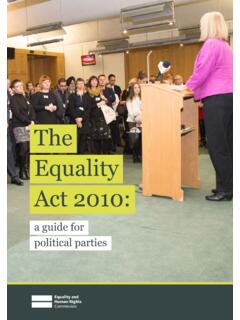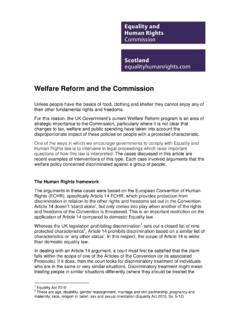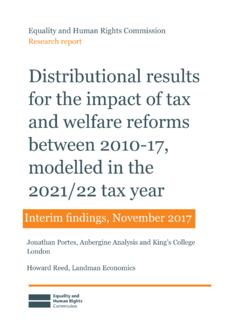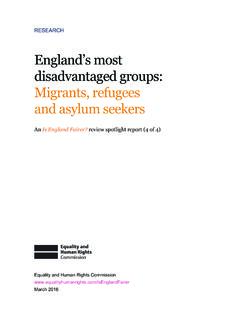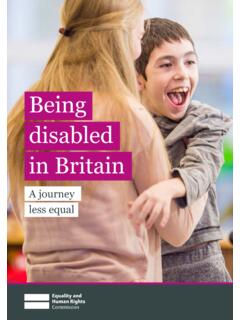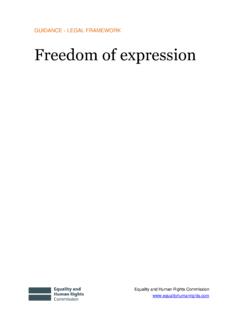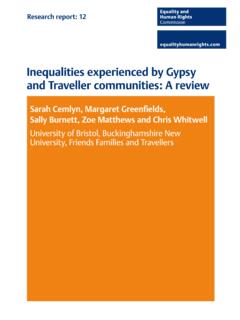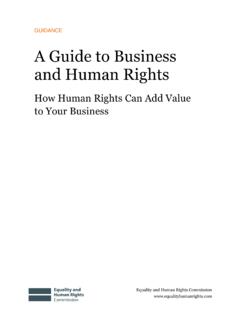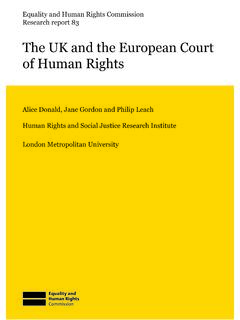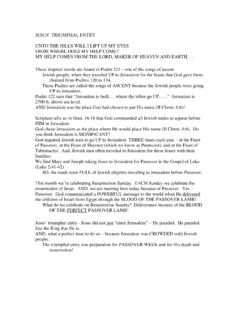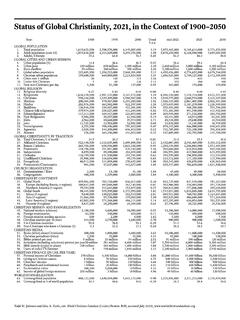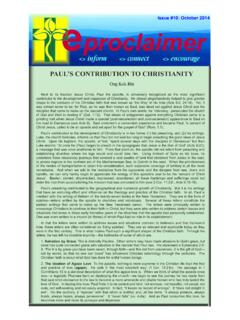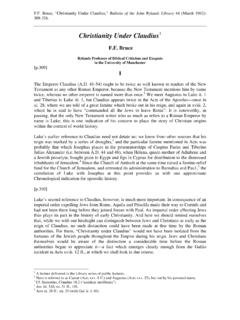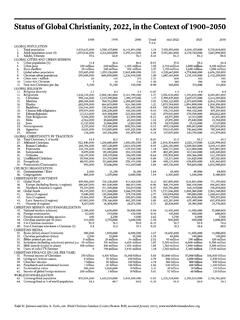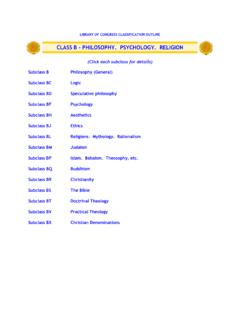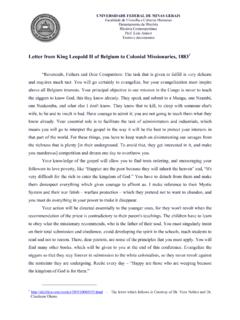Transcription of Religion or belief - Equality and Human Rights Commission
1 Religion or belief : a guide to the law1 Religion or belief : a guide to the lawReligion or belief : a guide to the law2 About this publication What is the aim of this publication? Religion or belief : a guide to the law provides an overview of the protections offered by the Equality Act 2010 and the Human Rights Act 1998 of people with or without a Religion or belief . It answers commonly asked questions such as what is indirect discrimination and can it ever be justified, and how much employers are expected to know about Religion or belief in order to fulfil their legal obligations.
2 Who is it for?This guide is for employers across the private and public sectors. Why has the Commission produced this?The Equality and Human Rights Commission is a statutory body established under the Equality Act 2006 to encourage Equality and diversity, eliminate unlawful discrimination, and protect and promote Human or belief : a guide to the law3 Equality Act 2010 The Equality Act 2010 makes it unlawful to discriminate against someone because of Religion or belief , or because of a lack a Religion or belief . For example, the Act protects Christians if they are discriminated against because of their Christian beliefs.
3 It also protects those who are discriminated against because they are not Christians, regardless of whether they have another Religion or no religious Act applies to all aspects of employment, the provision of goods, services and education, the use or the disposal of premises, the exercise of public functions, and the treatment by an association of its members and guests. It applies to all employers and service providers, whether they are public or private sector bodies, and regardless of their size. It protects employees and other workers against discrimination in selection for employment, during employment, in dismissal and post-employment.
4 It similarly protects actual or potential service users against discriminatory treatment by service providers. It explains the different kinds of unlawful discrimination, such as direct discrimination, indirect discrimination, harassment and victimisation. Finally, the Act sets out some exceptions to the normal rule against non-discrimination. For example, it explains when it is not unlawful to specify that applicants for a job must have a particular Religion or more detailed explanation of how the Act applies to employment and service providers, see the Equality and Human Rights Commission s Statutory Code of Practice on Employment and Statutory Code of Practice on Services, Public Functions and Associations.
5 Human Rights Act 1998 The Human Rights Act 1998 says that all public authorities and other bodies carrying out public functions, such as care services, have to act consistently with the European Convention on Human Rights . One of these Rights , Article 9, protects freedom of thought, conscience and Religion . It protects all religions and a wide range of philosophical beliefs including atheism, humanism, agnosticism, veganism and pacifism. Article 9 gives all individuals an absolute right to hold or change a particular Religion or belief . It also says that people have a qualified right to manifest that Religion or belief , for example in the way they dress or behave.
6 Because the right to manifest a Religion or belief is qualified it can be limited in some situations, such as to protect public safety and the Rights and freedoms of others. For example, it would be lawful for a hospital to have a policy restricting the kind of religious jewellery staff can wear on wards if the aim of the policy is to protect the health and safety of patients, and these restrictions are proportionate to that aim. Religion or belief : a guide to the law4 I am a private sector employer must I comply with the Human Rights Act 1998?If you are a private sector employer carrying out public functions for example, a security firm contracted by a public body to transport prisoners then the Human Rights Act applies directly to you when carrying out those public functions.
7 If you do not exercise public functions then the Act applies indirectly as the courts have to interpret UK laws to comply with Article 9 wherever possible. For example, when an employment tribunal is deciding whether a private sector employer has discriminated against an employee because of Religion or belief , it will use Article 9 to help it decide how the Equality Act 2010 should apply to the case. Which religions are protected by the Equality Act 2010?The Act says that Religion means any Religion , but doesn t include a definition of Religion . The courts have interpreted this as including any Religion of sufficient seriousness which has a clear structure and belief system.
8 The Act therefore protects religions such as christianity , Judaism, Islam and Hinduism, as well as others such as Baha i, Jainism, Rastafarianism and Zoroastrianism. A Religion need not be mainstream or well known to be protected under the addition, denominations or systems of belief within religions, such as Methodism or Sabbatarianism within christianity , or Sunni or Shia within Islam, are likely to be religions for the purposes of the Act says that Religion a lack of Religion . This means that people without a Religion , such as atheists, humanists and secularists, are protected under the Act.
9 It also means that a person who has a particular Religion will be protected if they are discriminated against because they lack another, different Religion . Religion or belief : a guide to the law5 Which beliefs are protected by the Equality Act 2010?The Act does not include a definition of belief other than belief means any religious or philosophical belief and includes a lack of a particular belief . The courts have developed a definition of belief through the cases they have belief need not include faith or worship of a god or gods, but it must affect how a person lives their life or perceives the world.
10 For a philosophical belief to be protected under the Act it must: be genuinely held be a belief and not just an opinion or viewpoint based on the present state of information available be about a weighty and substantial aspect of Human life and behaviour attain a certain level of cogency, seriousness, cohesion and importance, and be worthy of respect in a democratic society, not incompatible with Human dignity and not in conflict with fundamental Rights of others. For example, Holocaust denial, or the belief in racial superiority are not protected. Beliefs such as humanism, pacifism, vegetarianism and the belief in man-made climate change are all protected.
